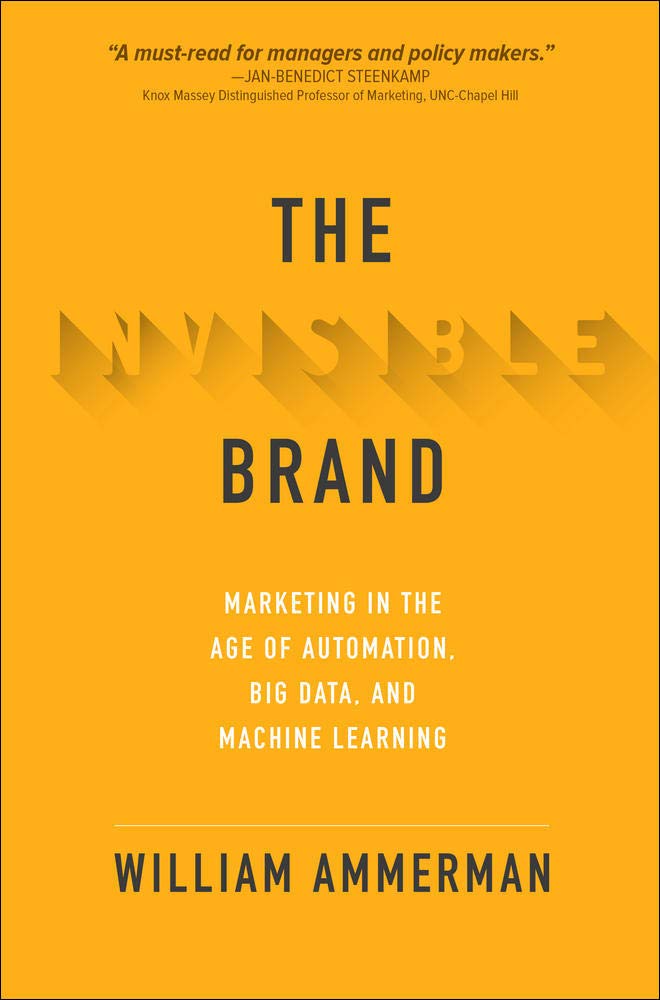Articles by William Ammerman
Big Tech Is Undermining Democracy; It’s Time To Take Back Control
Free speech is fundamental to democracy, but as unelected Big Tech publishers become the gatekeepers of the flow of information, this pillar of the American experiment is crumbling beneath us. Misinformation has always been a challenge, but it was formerly held in check by laws against libel and slander. Section 230 of the Communications Decency Act removed those checks by shielding Big Tech publishers like Google, Facebook, and Twitter, from the lawsuits that normally restrain the distribution of misinformation. Repeal of Section 230 is vital.
Read the articleThe 7 censorship tactics ‘Big Tech’ uses to control the flow of information
Big Tech publishers, including Facebook, Twitter, and Google, use seven major censorship tactics to control the flow of information through their products. Under the beneficent guise of “content moderation” most censorship by Big Tech publishers was traditionally directed at vices such as obscenity, violence, drugs, and gambling, often in direct response to advertisers who don’t want their ads to appear adjacent to such content. But increasingly, these publishers are applying censorship tactics to more slippery categories such as disinformation, bullying, and hate speech, where definitions are elusive and judgments are subjective and prone to bias. As the public increasingly relies on these publishers for news and information, it is vital to understand these censorship tactics and the potential risks they pose to free speech. Here are the 7 D’s of Big Tech censorship:
Read the articleFour Ways to Prepare for Voice Commerce
As a marketing professional, you’ve built your career by creating compelling campaigns that capture calls, clicks, likes, shares, and sales. You’ve mastered the art and science of SEO. But are you ready to market to the next generation of consumers?
Are you ready for voice?
Read the article7 Ways AI can Help You Sell More Stuff Right Now
Artificial intelligence is already a part of daily life, but for business owners, the key question is, “How can AI improve my marketing and help me sell more stuff right now?”
Throughout the customer decision journey, savvy marketers are already deploying AI at every step to engage customers, predict their needs, personalize messaging and keep them coming back for more. But many business owners have a nagging anxiety that they are falling behind, unable to keep up with the pace of change and they are increasingly fearful that an aggressive competitor will deploy a killer app that knocks them out of the market.
Read the articleNew Drivers Define The Consumer Decision Journey
The combination of Big Data collection and the algorithmic power of AI to learn is having a dramatic impact on the world of marketing and advertising. The personalization of information coupled with the science of persuasion and natural language processing is merging with these innovations to produce technology that operates on us psychologically, something called psychotechnology. In this new age of psychotechnology, we need to recognize that AI can help marketers in unifying data, optimizing campaigns, and harvesting insights. In other words, AI brings new capabilities to all phases of the customer journey, from building awareness and helping encourage buying decisions all the way through the retention of existing customers and turning them into powerful advocates.
Read the articleThe Secret Behind Amazon’s Unrivaled Success
Which powerhouse company has the heft to create its own holiday and completely revamp the retail shopping calendar? Amazon, of course.
2019 marks the fifth year of Amazon Prime Day, which was initially created to preempt the Black Friday sales extravaganza that falls after Thanksgiving. Unlike commercially driven “Hallmark Holidays,” such as National Secretary’s Day and Boss’s Day, Amazon’s festival of consumption has a noticeable impact on the economy. As reported by Bloomberg, 2018’s Amazon Prime Day delivered an astounding $4.2 billion in retail sales.
Read the articleAmazon Prime Day is Powered by AI
Amazon has the marketing scale to create its own holidays and the retail power to reshape the shopping calendar. 2019 marks the fifth year of Amazon Prime Day which was originally created to preempt the Black Friday sales that fall after Thanksgiving. Unlike “Hallmark Holidays” such as Secretary’s Day and Boss’s Day, Amazon’s festival of consumption has a noticeable impact on the economy, with Bloomberg reporting that last year’s 2018 Amazon Prime Day delivered $4.2 billion in retail sales.
Read the article3 Questions: Facebook Wants Us to Trust Their New Currency
Recently, Facebook, Inc. made headlines with a controversial new announcement: within a year, the social media giant will launch a new digital currency called Libra. On its face, it’s an exciting development. If Facebook’s rollout goes as planned, consumers will be able to transfer money to anyone – and buy anything, anywhere – all without a bank account or credit card. For the 1.7 billion people without banking access, Libra could be the miracle gateway to the global economy.
Read the articleThe Invisible Brand is at Work using A.I.
The four most popular voice assistants: Siri, Google Assistant, Alexa, and Cortana correspond exactly to the four most valuable global brands: Apple, Google, Amazon, and Microsoft. That isn’t a coincidence. Voice is the consumer-facing edge of artificial intelligence at the world’s most valuable brands, and that trend is poised to continue. Consider that a recent article in TechCrunch reports that voice assistants will triple in use to 8 billion worldwide by 2023.
Read the articleThe New Media Model: 3 Ways to Remain Relevant in the Age of AI
In the early days of the internet, the news was always free. In a race to secure eyeballs over subscriptions, every publication launched a website and gave away free access to their content—even while still charging print subscribers. That experiment worked for some publications, but not for others. We’ve seen a comeback in the notion of a “paywall,” a subscription needed to access what used to be free content, as younger consumers have begun to embrace the idea of paying for quality journalism.
Read the article

